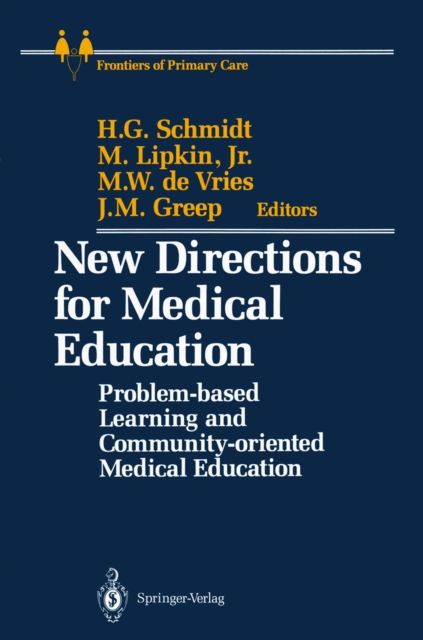
New Directions for Medical Education : Problem-based Learning and Community-oriented Medical Education PDF
Edited by Henk G. Schmidt, Mack Jr. Lipkin, Marten W. de Vries, Jacobus M. Greep
Part of the Frontiers of Primary Care series
Description
Primary care medicine is the new frontier in medicine.
Every nation in the world has recognized the necessity to deliver personal and primary care to its people.
This includes first-contact care, care based in a positive and caring personal rela- tionship, care by a single healthcare provider for the majority of the patient's prob- lems, coordination of all care by the patient's personal provider, advocacy for the patient by the provider, the provision of preventive care and psychosocial care, as well as care for episodes of acute and chronic illness.
These facets of care work most effectively when they are embedded in a coherent integrated approach.
The support for primary care derives from several significant trends.
First, technologically based care costs have rocketed beyond reason or availability, occurring in the face of exploding populations and diminishing real resources in many parts of the world, even in the wealthier nations.
Simultaneously, the primary care disciplines-general internal medicine and pediatrics and family medicine-have matured significantly.
They have become viable alternatives to the specialty approach to care with its potential dehumanization, coordination problems, and increased cost.
Information
-
Download - Immediately Available
- Format:PDF
- Publisher:Springer New York
- Publication Date:06/12/2012
- Category:
- ISBN:9781461234722
Information
-
Download - Immediately Available
- Format:PDF
- Publisher:Springer New York
- Publication Date:06/12/2012
- Category:
- ISBN:9781461234722










